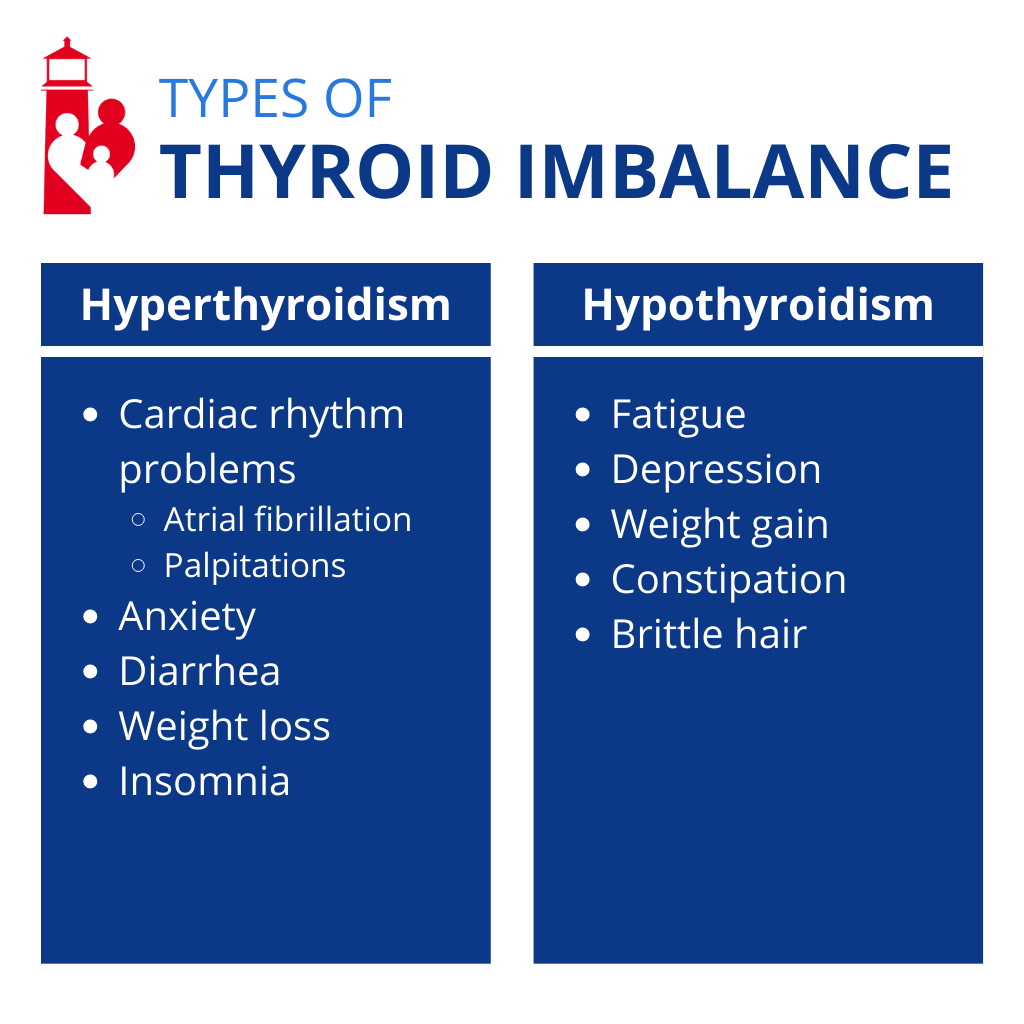
Most of us have heard of the thyroid, and we perhaps have a general sense that it’s important. Today, I want to take you down the path of thyroid issues to help you understand the hows and whys of this crucially significant gland.
What does the thyroid do? What can go wrong? How do you balance thyroid hormones?
What Is the Thyroid?
When we do a physical exam at my practice, we screen patients for thyroid issues. That’s because the thyroid has its hand in every aspect of what goes on in your body.
The thyroid gland, a butterfly-shaped gland located in the front of the throat, is part of the endocrine system. It secretes two thyroid hormones (notably T3 and T4) that are vitally important in regulating the rate at which our bodies work — our metabolism. It also affects other crucial bodily functions, including (but not limited to!) brain development, breathing, digestion, and heart rate.
With such far-reaching effects, it’s not hard to imagine the significance of an improperly functioning thyroid gland.
What Is Thyroid Imbalance?
Ideally, the thyroid releases its hormones at appropriate levels, and everything functions as it should. That’s not always the case, though. In fact, more than 12% of the U.S. population will have thyroid issues during their lifetime.
The thyroid gland can deviate from normal function by becoming either overactive (hyperthyroidism) or underactive (hypothyroidism). The symptoms for each differ, but both have undesirable consequences.
Hyperthyroidism means the thyroid gland is producing too much hormone, which can cause specific symptoms to arise:
- Cardiac rhythm problems, like atrial fibrillation and palpitations
- Anxiety
- Diarrhea
- Weight loss
- Insomnia
Hypothyroidism means the thyroid gland isn’t producing enough hormone, leading to these symptoms:
- Fatigue
- Depression
- Weight gain
- Constipation
- Brittle hair
Most commonly, thyroid dysfunction results from abnormalities in the hypothalamic-pituitary axis, specifically cortisol levels, and autoimmune problems. These abnormalities can stem from prolonged stress, infections that affect thyroid gland, and nutritional deficiencies.
For example, if you have a stressful lifestyle, it affects how much your thyroid gland is taxed, and can even wear it out. Or, if your gut health is languishing, you could develop an infection that leads to thyroid inflammation and dysfunction. Thyroid hormones are created from certain amino acids, so if you have deficiencies in your nutrition, it can affect your thyroid’s ability to produce its hormones.
Furthermore, because the thyroid’s purpose is to regulate the metabolism of everything, it can become a vicious cycle. If your metabolism is off, then it affects your thyroid hormone production, which in turn affects your metabolism, which in turn… you get the idea.
How to Balance Your Thyroid Hormones
As you can see, it’s important to balance your thyroid hormones because of their inter-relatedness with all aspects of health. The first step is identifying when you have an imbalance.
Thyroid tests are simple, inexpensive blood tests, which most commonly look at the level of something called TSH, or thyroid stimulating hormone, in your system. Your physician evaluates the resulting number, or value, to see whether it falls within certain established thresholds for “normal” function.
In functional medicine, we look at these numbers a little more closely. Instead of judging test results based only on whether they fall within the established range, we also look for what’s called “subclinical” results. Subclinical numbers mean you haven’t yet crossed the threshold into a “clinical” case of dysfunction, but you’re getting there.
Conventional medicine doesn’t often pay subclinical numbers much mind, but functional medicine wants to see how close you are to hypo or hyperthyroidism, and to understand your general trend. A treatment plan at this level could include lifestyle changes related to the Four Pillars of Health: sleep, exercise, nutrition, and stress elimination — or SENSE, for an easy-to-remember acronym.
Sometimes, however, you’re limited in how much you can do with lifestyle factors and conventional treatment is required to balance your thyroid hormones. If the root of the dysfunction is an autoimmune problem, for example, lifestyle changes likely won’t be enough.
How Conventional Treatments Balance Thyroid Hormones
In the case of an underactive thyroid, taking thyroid supplements may be necessary to bring the hormones into balance. With an overactive thyroid, the opposite is needed, and medicines are used to destroy the thyroid. Following that treatment, patients then take thyroid hormone supplements to supply the body with what’s missing.
One final safety note: If a thyroid nodule is felt or suspected, an ultrasound should be done to rule out cancer. Thyroid nodules aren’t necessarily cancerous, but they should always be investigated.

Dr. David Rosenberg
Dr. Rosenberg is a board-certified Family Physician. He received his medical degree from the University of Miami in 1988 and completed his residency in Family Medicine at The Washington Hospital in Washington, Pennsylvania in 1991. After practicing Emergency Medicine at Palm Beach Gardens Medical Center for two years, he started private practice in Jupiter, in 1993. He is an avid baseball fan and Beatles fanatic, since he was 8 years old. He has been married to his wife, Mary, since 1985 and has three grown children.
David completed additional studies at Mercer University, Macon, Georgia and obtained a BS in Chemistry in 1983.
“My interests include tennis, snow skiing, Pilates and self-development.”


